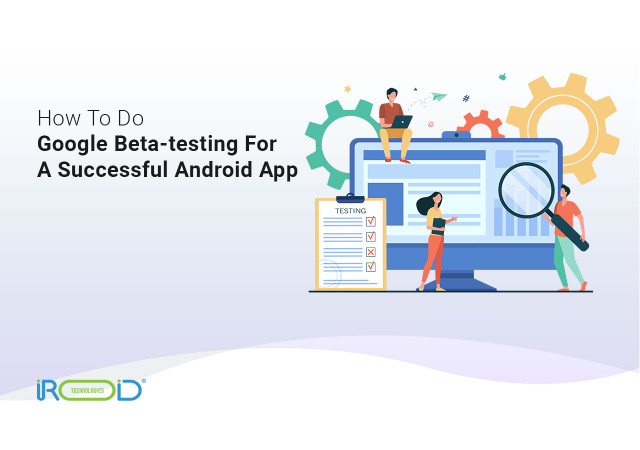How To Do Google Beta-testing For A Successful Android App?

In the application development lifecycle, Android app beta testing is an important stage. It helps to keep your mobile app quality up to a certain level and enhance its user experience, among different other things also. Through this blog, we take you through all the basic elements of google beta testing your Android app in order to assist you to prepare for this phase.
What Is Android App google beta testing?
Android app beta testing is in simple terms a phase of the software development life cycle. It is here where a group of external users normally called beta testers test your application in real-world environments and with real-time parameters to discover all possible errors and provide you with the most up-to-date feedback. You can use this user feedback to identify and fix any existing issues or bugs ahead of your app’s production release. Also with this phase, you can implement less urgent ideas in the upcoming iterations.
Why Android App Beta Testing?
Android app google's beta testing is a choice to make because it helps you in saving time, money, and even effort. Some of the Beta testing benefits are listed below:
- Quality: Assuring and maintaining your app’s quality while making sure that everything is running as it is expected to be and constantly trying to provide the best user experience possible is one of the benefits of google's beta testing.
- Cost: As google's beta testing can help in catching bugs before release, it saves you over the long run as bugs and glitches in production are highly costly.
- Performance: Google's beta testing makes sure that your Android app is up to industry standards and regulations and even matches the users’ expectations.
- Proof of Concept: It helps in validating your ideas and concepts based on feedback from real and existing users.
- More Testers: More testers means there are more chances of uncovering bugs that may have slipped through earlier test phases.
- Diverse Perspectives: Here we have got a chance to collect a wide array of feedback with various perspectives from users of multiple backgrounds, demographics, and locations.
- Early Adopters: We can build a community of users too even before the launching of your app.
- Google Play: Google strongly encourages developers to release their early versions of their apps for alpha and beta testing. It is done to find errors and make required improvements prior to its final release. So here you can ensure a higher chance of passing the Play Store review.
- Bugs and Crashes: You can discover the bugs and crashes within your app and can fix or optimize them before launching your app.
What to Ask Beta Testers?
The major issue with Android app google beta testing is that mobile app developers complaining that they are not getting ample and useful feedback. To find the insights you require, you should ask your beta testers the right set of questions. For example:
- Numerical Answers and Scales: Quantifying every answer enables testers to give you more accurate feedback.
- Multiple Choice Questions: MCQ can make it easier for the testers to participate.
- Specific Details: Start with a general aspect and later break it down into identifiable parts, and then move on to more details.
How Long Should Android App Beta Testing Take?
The time required for the Android beta testing phase depends on many determinants, they are included below:
- Objectives: How many objectives do you have? Beginning from feedback about bugs, functionality, user experience, etc. are the objectives, the more time you will need to cover them.
- Testers: If you have more testers it is faster for you to cover all the objectives of your test.
- Participation: Providing your testers with proper information on your goals and objectives, and motivating them throughout will both increase the quality of participation and smooth out the process.
Android App Beta Testing Outputs
Now almost coming to the conclusion, how do you know if your beta test was successful? One of the first and most important steps of the testing process is properly defining your testing metrics. If it’s a private beta, then the major focus is typically on usability and quality assurance. Coming to public betas they are more marketing-focused in terms of awareness and collecting feedback. Some of the crucial beta test metrics to consider are the following:
- Track the number of bugs in your app over time along with their severity.
- Understand the percentage rate at which users stop using your app. Also, identify the drop-off points.
- Tracking the quality and actionable feedback that you receive as compared to your complete feedback received.
Conclusion
I strongly believe that after reading this blog, you will realize why Beta testing for your Android app is a MUST and should not be avoided at any cost. Although the involvement of the correct Android app development team from a leading app development company in India is important since this team will have the necessary knowledge and exposure to handle your App Testing on Beta with ease.

